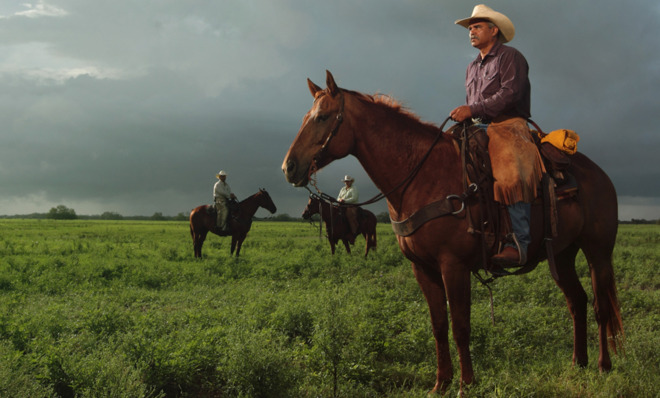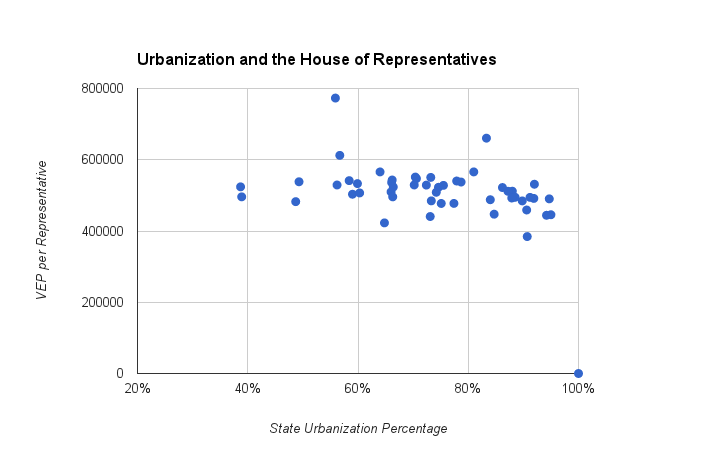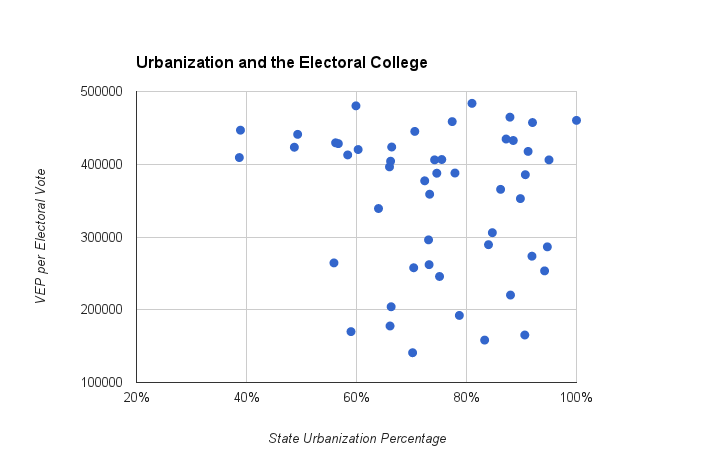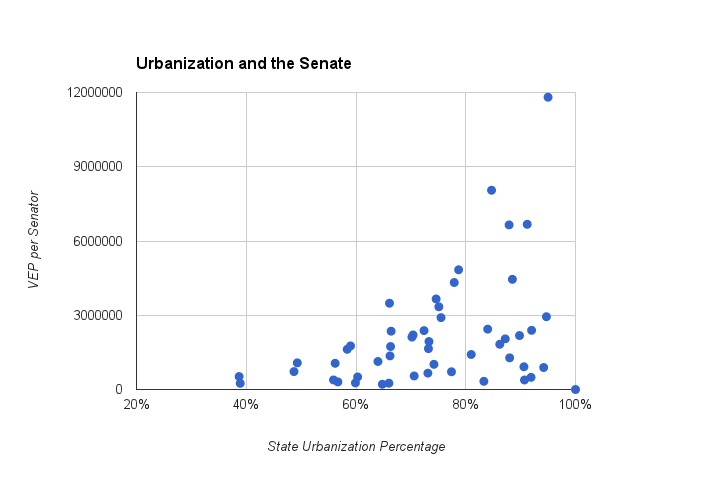Cliven Bundy and the myth of rural 'powerlessness'
Bundy and his comrades enjoy far more political power than the average urbanite


A free daily email with the biggest news stories of the day – and the best features from TheWeek.com
You are now subscribed
Your newsletter sign-up was successful
Over at National Review, David French has penned the latest in a series of conservative quasi-defenses of Cliven Bundy, the Nevada rancher who is in the midst of an armed standoff with federal authorities after Bundy refused to pay grazing fees for his cattle. While acknowledging that Bundy is on the wrong side of the law, French bemoans the "powerlessness" of Bundy and his ilk, arguing that the incident is further evidence that rural America is being trodden under the boot heel of Big Urbanism:
As government grows ever larger, majority rule becomes more consequential for minority populations. The regulatory state grows, and rural Americans are left with little recourse...
With few options left within conventional politics, rural Americans are beginning to contemplate more dramatic measures, such as the state secession movements building in Colorado, Maryland, California, and elsewhere...
Americans have always had profound differences, and we live together with those differences when victory for one side doesn’t mean inflicting real harm on the losers. But when victory for one side means the end of a way of life for the losers, instability can and will result. [National Review]
Two points, up front: First, rural Americans represent less than one fifth of the population. (I used to be one myself.) Under anything close to a democratic system that's going to mean you don't get what you want all the time. Second, the Bureau of Land Management isn't trying to destroy Bundy's way of life; the agency is trying to get him to pay his grazing fees, which my rancher friends back home somehow manage to do without pointing firearms at anyone. If Cliven Bundy had a different tribal identity — if he was part of a leftist commune, for example — National Review would be baying for his hide.
But more importantly, the idea that rural America is powerless is nonsense. In fact, rural voters continue to exercise vastly disproportionate influence — if anything, the political system is rigged in their favor.
The Week
Escape your echo chamber. Get the facts behind the news, plus analysis from multiple perspectives.

Sign up for The Week's Free Newsletters
From our morning news briefing to a weekly Good News Newsletter, get the best of The Week delivered directly to your inbox.
From our morning news briefing to a weekly Good News Newsletter, get the best of The Week delivered directly to your inbox.
This can be seen in the data. I took voting-eligible population (VEP) data from here, and calculated the VEP per Electoral College vote, House seat, and Senate seat. Then I plotted that against state urbanization percentages taken from the 2010 Census. The lower the position on the Y-axis, the bigger the bang for your buck.
Here's the House:

This is relatively fair (with a slight bias for urbanization), which makes sense because House seats are apportioned according to population. (Ignore the data point of Washington, D.C., in the lower right, which has no representation in the House.)
Now, check out Electoral College votes:
A free daily email with the biggest news stories of the day – and the best features from TheWeek.com

Again we see a slight bias in favor of urbanization, but over a data set that is much more spread out. Mostly the Electoral College empowers tiny states, which can be both urban and rural, at the expense of large ones.
But now consider the Senate:

There we have it: as urbanization increases, the number of voters represented per senator increases dramatically. This is the bulwark of rural strength — and what an enormous source of strength it is. The Electoral College over-represents small states, but the effect is limited by the House (a state's electoral votes equals its House seats plus two). The Senate, by contrast, has no such mechanism: California and Wyoming both get two senators, even though the former is nearly 66 times larger population-wise.
Therefore, the system in general over-represents small states, which rural states usually are, and vastly under-represents large states, which are heavily urbanized.
This might be why supposedly big government-averse Republicans will elbow each other out of the way to pass a colossal package of socialist farm subsidies. Or why the Post Office has become a massive subsidy program for rural places.
And honestly, I'm mostly okay with that. (I'd change the farm bill on other grounds, but subsidizing rural spots is fine.) But pardon me if I'm a little skeptical of granting even more power to rural Americans every time some kook and his pack of assault rifle-wielding thugs decide they're entitled to free land rents or else. Aside from that nutter, rural America is doing just fine.
Ryan Cooper is a national correspondent at TheWeek.com. His work has appeared in the Washington Monthly, The New Republic, and the Washington Post.
-
 The ‘ravenous’ demand for Cornish minerals
The ‘ravenous’ demand for Cornish mineralsUnder the Radar Growing need for critical minerals to power tech has intensified ‘appetite’ for lithium, which could be a ‘huge boon’ for local economy
-
 Why are election experts taking Trump’s midterm threats seriously?
Why are election experts taking Trump’s midterm threats seriously?IN THE SPOTLIGHT As the president muses about polling place deployments and a centralized electoral system aimed at one-party control, lawmakers are taking this administration at its word
-
 ‘Restaurateurs have become millionaires’
‘Restaurateurs have become millionaires’Instant Opinion Opinion, comment and editorials of the day
-
 The billionaires’ wealth tax: a catastrophe for California?
The billionaires’ wealth tax: a catastrophe for California?Talking Point Peter Thiel and Larry Page preparing to change state residency
-
 Bari Weiss’ ‘60 Minutes’ scandal is about more than one report
Bari Weiss’ ‘60 Minutes’ scandal is about more than one reportIN THE SPOTLIGHT By blocking an approved segment on a controversial prison holding US deportees in El Salvador, the editor-in-chief of CBS News has become the main story
-
 Has Zohran Mamdani shown the Democrats how to win again?
Has Zohran Mamdani shown the Democrats how to win again?Today’s Big Question New York City mayoral election touted as victory for left-wing populists but moderate centrist wins elsewhere present more complex path for Democratic Party
-
 Millions turn out for anti-Trump ‘No Kings’ rallies
Millions turn out for anti-Trump ‘No Kings’ ralliesSpeed Read An estimated 7 million people participated, 2 million more than at the first ‘No Kings’ protest in June
-
 Ghislaine Maxwell: angling for a Trump pardon
Ghislaine Maxwell: angling for a Trump pardonTalking Point Convicted sex trafficker's testimony could shed new light on president's links to Jeffrey Epstein
-
 The last words and final moments of 40 presidents
The last words and final moments of 40 presidentsThe Explainer Some are eloquent quotes worthy of the holders of the highest office in the nation, and others... aren't
-
 The JFK files: the truth at last?
The JFK files: the truth at last?In The Spotlight More than 64,000 previously classified documents relating the 1963 assassination of John F. Kennedy have been released by the Trump administration
-
 'Seriously, not literally': how should the world take Donald Trump?
'Seriously, not literally': how should the world take Donald Trump?Today's big question White House rhetoric and reality look likely to become increasingly blurred
